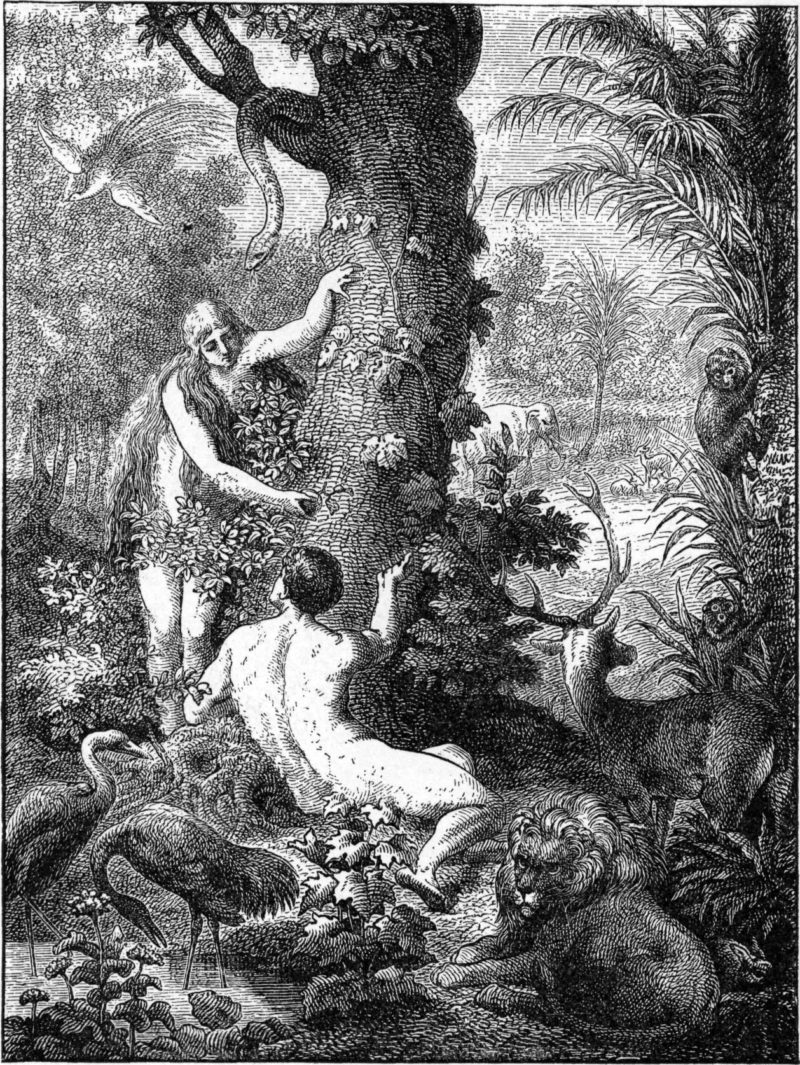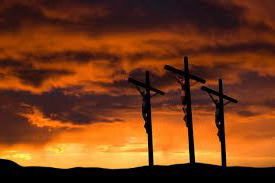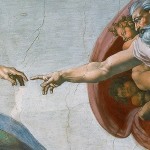Recently I heard Eric Metaxas interview Dr. John C. Rankin about his latest book, provocatively titled The Freedom to Choose Hell. I was reminded of something C.S. Lewis writes in The Great Divorce: “There are only two kinds of people in the end: those who say to God, ‘Thy will be done,’ and those to whom God says, in the end, ‘Thy will be done.’”
Hell exists because men and women are free. Human beings are free to say no to God and yes to hell! They choose, and then experience the logical consequences of that choice.
God’s self-revelation was intended to lead humans to acknowledge and worship Him (Romans 1:19-22). But instead, human beings became foolish. They abandoned reason and common sense, and created their own gods – idols and illusions – out of their own imaginations (Romans 1:23).
For this reason, “God gave them over” (Romans 1:24, 26, 28b) to the consequences of their choice. The Greek word “give over” is paradidōmi, and literally means “gave up them to” or “abandoned them to” the logical consequences of their choices. God gives them over to self-inflicted punishment, not an extrinsic penalty. God has abandoned them to the consequences of their free choices.
This post will briefly examine the nature and extent of human freedom.
Genesis, the creation and the context for freedom
Human beings were created to be free moral agents: makers of history, creators of culture, builders of nations. Humans were designed as conscious contributors to God’s telios, that is, the grand purpose He envisions for the universe. The Bible narrative is framed by the creation, fall, redemption, and consummation of the universe. Genesis 1-3 lays out the foundation of the biblical worldview and thus the basis for the entire narrative.
The narrative opens, “In the beginning God created the heavens and the earth” (Genesis 1:1). Contrast that with the Darwinian framework: “In the beginning nature …” These different beginnings lead to very different narratives for all of life.
Now the earth was formless (tō·hû – formlessness/wasteland/idol/ruination/vanity) and empty (bō·hû – emptiness/wasteness/abyss), darkness (ḥō·šěḵ darkness/blackness) was over the surface of the deep, and the Spirit of God was hovering over the waters, Genesis 1:2.
The initial step of the creation process was making the raw material which was formless, empty and dark. Then the Artist began to shape the raw material. The first “form” was light to illuminate the darkness: And God said, “Let there be light,” and there was light, Genesis 1:3.
The rest of Genesis 1 records God forming the unformed into higher and higher complexity and order: inorganic material, then organic (plants), then animals, and finally the highest form of His creative expression, humans, the very image of God.
The formless was formed, the emptiness filled, the darkness illuminated—all through the Spirit of God—so that the form and distinctions might be seen and celebrated. And in the final act of creation, the Spirit of God breathed life into the man and woman, distinguishing them from the rest of creation and making them free moral agents.
The proof of human significance is found in the garden where man was placed: The LORD God took the man and put him in the Garden of Eden to work (ʿā·ḇǎḏ – work, cultivate, serve) it and take care of (šā·mǎr – keep and guard) it. Man was put in the garden for the purpose of stewarding what God had given. He was to cultivate the garden—to make it flourish—and to protect it from harm, to both develop and conserve it. His significance is established in part by his assignment to steward what God had given, thus fulfilling God’s purpose.
 But there is a second place where man’s significance is established: the tree in the midst of the garden – the tree of the knowledge of good and evil. This is the tree of affirmation, the tree that affirms man as a free moral agent.
But there is a second place where man’s significance is established: the tree in the midst of the garden – the tree of the knowledge of good and evil. This is the tree of affirmation, the tree that affirms man as a free moral agent.
And out of the ground the LORD God made to spring up every tree that is pleasant to the sight and good for food. The tree of life was in the midst of the garden, and the tree of the knowledge of good and evil, Genesis 2:9.
God makes one proscription:
The LORD God commanded the man, saying, “From any tree of the garden you may eat freely; but from the tree of the knowledge of good and evil you shall not eat, for in the day that you eat from it you will surely die,” Genesis 2:17.
God provides all the human could want, a perfect world and an intimate, unbroken relationship with the Creator. All the trees in the garden but one are intended for food. This tree alone affirms that God is God and man is His creature. It affirms that God is sovereign and man is dependent, living in a moral universe that God has ordered. This tree also affirms man’s volition: he is a free moral agent. He has real personal freedom and the corresponding responsibility for his decisions.
And actually, Adam is free to eat from this tree as well. But logical consequences will follow: he will die! The Hebrew word translated “die” literally means, “dying you shall continually die.”[i] To eat of this fruit is to break God’s moral order and thus to die spiritually, continually separated from God’s intimacy. This naturally leads to physical death as well.
In the modern world we do not want this kind of freedom. We want its counterfeit – license, the right to decide without responsibility for those decisions. We want decisions without consequences. We want to follow our base instincts with impunity. We think this is freedom, but actually it is slavery!
Freedom so real that we can say No! to God
God does not force our will. We are not puppets on a string, or programmed automatons. No, we are the very image of God, free to make real choices, even free to say no to God and yes to hell.
Genesis 3 records a free man and woman turning their backs on God. Freedom allows us to say no to God. Without such freedom, there could be no love, and love is God’s nature and priority. We are free to rebel. But rebellion has tragic consequences for the entire created order.
Adam and Eve rebelled against God and His moral and metaphysical order. Their choice had consequences for their primary relationship with God, but also for all the secondary relationships rooted in that primary relationship. Man’s understanding of himself was shattered as was his relationship with his fellow human beings and his relationship with the rest of creation. Man’s rebellion against God produced a comprehensive shattering of all creation.
Only a comprehensive restoration can recover the creation from this shattering, can restore mankind in their primary and secondary relationships.
This is exactly what the cross of Christ provided. The Apostle Paul states this so clearly:
God was pleased to have all his fullness dwell in him, and through him to reconcile to himself all things, whether things on earth or things in heaven, by making peace  through his blood, shed on the cross, Colossians 1:19-20.
through his blood, shed on the cross, Colossians 1:19-20.
At the heart of this salvation is the restored freedom humans knew before the fall, the freedom to be good and do good. True freedom, living within the creation order, is the choosing of good. When we choose the good, freedom grows. License is a counterfeit of freedom. When we choose evil, poverty and enslavement increase.
To secure this freedom, God the Father freely chose to send his Son to die. Jesus Christ freely chose to obey. Ponder that for a moment. The Father and the Son freely agreed to provide freedom from sin and death.
God does not manipulate your will. In his interview with Metaxas, Rankin suggested an intriguing restatement of John 3:16: “For God so loved the world that he gave each one of us the freedom to choose to go to hell if we … want to.”
- Darrow Miller







